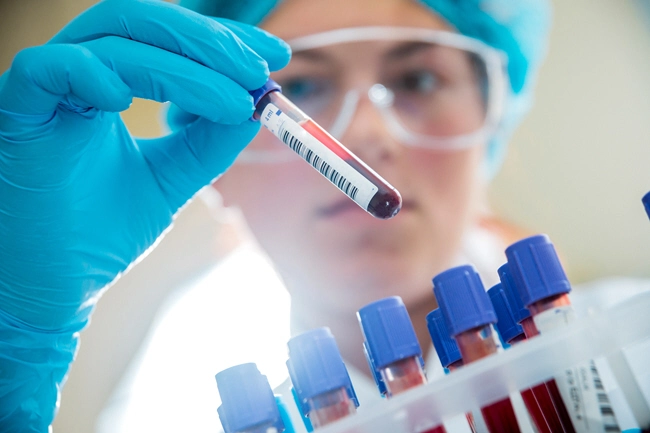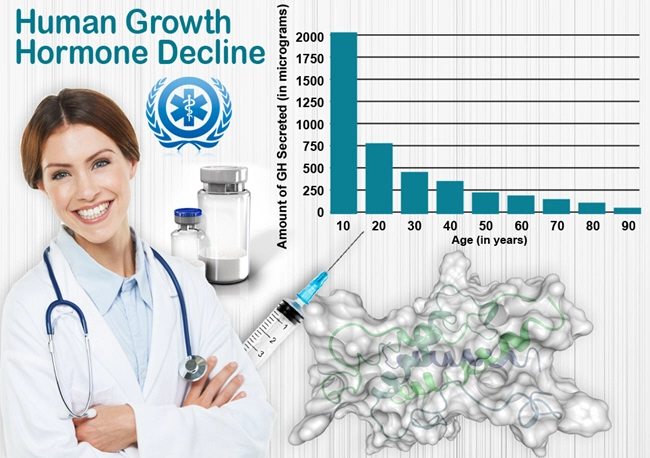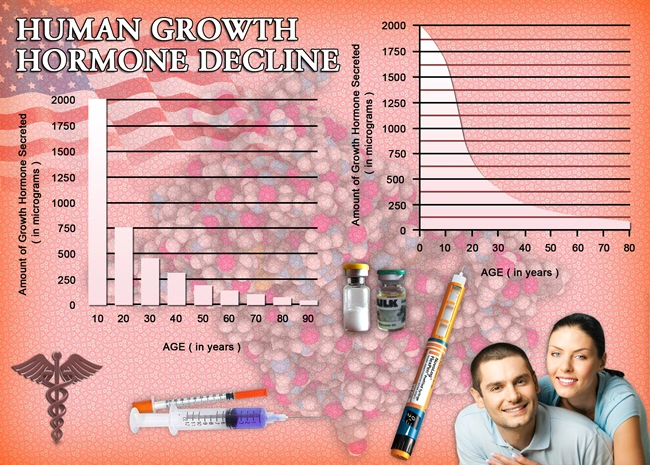
Introduction
Premature ejaculation (PE) is a common sexual dysfunction that affects a significant number of American males, leading to distress and relationship challenges. While biological factors are often considered in the diagnosis and treatment of PE, the role of relationship dynamics is increasingly recognized as a critical component in understanding and managing this condition. This article delves into a qualitative study that examines the influence of relationship dynamics on premature ejaculation, drawing from insights gathered during couples counseling sessions. By exploring these interpersonal factors, we aim to provide a comprehensive view of PE and suggest integrated approaches to its management.
Understanding Premature Ejaculation
Premature ejaculation is defined as ejaculation that occurs sooner than desired, either before or shortly after penetration, causing distress to one or both partners. It is a prevalent issue, with estimates suggesting that up to 30% of American men may experience PE at some point in their lives. While medical interventions such as selective serotonin reuptake inhibitors (SSRIs) and topical anesthetics are commonly used, the psychological and relational aspects of PE are often overlooked.
The Role of Relationship Dynamics
The qualitative study involved in-depth interviews with couples undergoing counseling for PE. The findings highlighted several key themes regarding the influence of relationship dynamics on this condition. Firstly, communication patterns emerged as a significant factor. Couples who reported open and honest communication about their sexual experiences were more likely to experience improvements in PE symptoms. Conversely, those with poor communication often found that PE exacerbated existing tensions, creating a negative feedback loop.
Emotional Intimacy and Support
Emotional intimacy and support within the relationship also played a crucial role. Couples who felt emotionally connected and supported by their partners were better equipped to address PE. The study found that when partners expressed empathy and understanding, men felt less anxious and more confident in managing their condition. This emotional support was often more effective than pharmacological interventions alone, suggesting that a holistic approach to treatment is essential.
Power Dynamics and Control
Another important aspect was the power dynamics within the relationship. In some cases, feelings of inadequacy or loss of control related to PE were exacerbated by perceived power imbalances. Counseling sessions that focused on rebalancing these dynamics and fostering a sense of mutual respect and equality were particularly beneficial. By addressing these underlying issues, couples were able to work together more effectively to manage PE.
Therapeutic Interventions
The study also explored various therapeutic interventions used in couples counseling. Techniques such as sensate focus, a method that encourages partners to focus on touch and sensation without the pressure of sexual performance, were found to be highly effective. Additionally, cognitive-behavioral therapy (CBT) helped couples reframe negative thoughts about sex and PE, leading to improved outcomes.
Implications for Treatment
The findings of this study have significant implications for the treatment of premature ejaculation in American males. It underscores the importance of considering relationship dynamics alongside medical interventions. Healthcare providers should encourage couples to seek counseling in addition to pharmacological treatments, as this integrated approach can lead to more sustainable improvements in PE symptoms.
Conclusion
Premature ejaculation is a complex condition influenced by both biological and relational factors. This qualitative study highlights the critical role of relationship dynamics in the management of PE. By fostering open communication, emotional intimacy, and balanced power dynamics, couples can work together to overcome this challenging condition. As healthcare providers, it is essential to adopt a holistic approach that addresses both the physical and emotional aspects of premature ejaculation, ultimately improving the quality of life for American males and their partners.
References
1. American Urological Association. (2019). Guideline on the Management of Premature Ejaculation.
2. Metz, M. E., & McCarthy, B. W. (2003). Coping with premature ejaculation: How to overcome PE, please your partner & have great sex. New Harbinger Publications.
3. Rowland, D. L., & Cooper, S. E. (2019). The Premature Ejaculation Debate: Assessing the Evidence for Different Treatment Approaches. Journal of Sexual Medicine, 16(4), 525-534.
Contact Us Today For A Free Consultation
Dear Patient,
Once you have completing the above contact form, for security purposes and confirmation, please confirm your information by calling us.
Please call now: 1-800-380-5339.
Welcoming You To Our Clinic, Professor Tom Henderson.

- Unravelling the Rush: Unmasking the Realm of Premature Ejaculation [Last Updated On: February 25th, 2025] [Originally Added On: February 25th, 2025]
- Confronting the Clock: Understanding the Science of Premature Ejaculation [Last Updated On: February 26th, 2025] [Originally Added On: February 26th, 2025]
- Unveiling the Mystery: The Underlying Causes of Premature Ejaculation [Last Updated On: February 27th, 2025] [Originally Added On: February 27th, 2025]
- Unraveling the Complexity of Performance: The Psychological Underpinnings of Premature Ejaculation [Last Updated On: February 28th, 2025] [Originally Added On: February 28th, 2025]
- Mastering the Art of Long-lasting Intimacy: An In-depth Look at Techniques to Delay Ejaculation [Last Updated On: February 28th, 2025] [Originally Added On: February 28th, 2025]
- Premature Ejaculation: Debunking Myths and Providing Facts for American Men [Last Updated On: March 1st, 2025] [Originally Added On: March 1st, 2025]
- Sorting Through the Shadows: Debunking the Misconceptions About Premature Ejaculation [Last Updated On: March 1st, 2025] [Originally Added On: March 1st, 2025]
- Introduction Into Early Emission Hormonal Disorders [Last Updated On: March 2nd, 2025] [Originally Added On: March 2nd, 2025]
- Comprehensive Overview of Premature Ejaculation: Causes, Diagnosis, and Treatment Options [Last Updated On: March 3rd, 2025] [Originally Added On: March 3rd, 2025]
- Understanding Premature Ejaculation: Impacts and Management Strategies [Last Updated On: March 4th, 2025] [Originally Added On: March 4th, 2025]
- Comprehensive Guide to Understanding and Managing Premature Ejaculation [Last Updated On: March 5th, 2025] [Originally Added On: March 5th, 2025]
- Understanding and Managing Delayed Ejaculation: Psychological and Behavioral Strategies [Last Updated On: March 6th, 2025] [Originally Added On: March 6th, 2025]
- Managing Performance Anxiety in Premature Ejaculation: Strategies for Psychological and Physical Well-being [Last Updated On: March 7th, 2025] [Originally Added On: March 7th, 2025]
- Mastering the Clock: Hormonal Influences on Ejaculatory Control and Premature Ejaculation in American Men [Last Updated On: March 7th, 2025] [Originally Added On: March 7th, 2025]
- Unraveling the Mystery: A Deep Dive into Premature Ejaculation in American Men [Last Updated On: March 7th, 2025] [Originally Added On: March 7th, 2025]
- Comprehensive Guide to Managing Premature Ejaculation for American Men: Causes, Treatment, and Coping [Last Updated On: March 8th, 2025] [Originally Added On: March 8th, 2025]
- Managing Premature Ejaculation: Natural Remedies and Behavioral Techniques for Male Sexual Health [Last Updated On: March 9th, 2025] [Originally Added On: March 9th, 2025]
- Exploring the Dual-Use Potential of Erectile Dysfunction Medications in Treating Premature Ejaculation [Last Updated On: March 12th, 2025] [Originally Added On: March 12th, 2025]
- Mastering Your Heartbeat: Techniques for American Males to Gain Control Over Rapid Heart Rhythms [Last Updated On: March 13th, 2025] [Originally Added On: March 13th, 2025]
- Mindfulness and Mastery: Transforming Premature Ejaculation Through Conscious Control [Last Updated On: March 15th, 2025] [Originally Added On: March 15th, 2025]
- Managing Premature Ejaculation: Communication, Techniques, and Professional Support for American Men [Last Updated On: March 18th, 2025] [Originally Added On: March 18th, 2025]
- Nervous System's Role in Premature Ejaculation: Causes, Treatments, and Future Research [Last Updated On: March 18th, 2025] [Originally Added On: March 18th, 2025]
- Managing Premature Ejaculation: Diet, Exercise, Stress, Sleep, and Communication Strategies for American Males [Last Updated On: March 19th, 2025] [Originally Added On: March 19th, 2025]
- Managing Premature Ejaculation: Fast Forward and Slow Down Approaches for American Men [Last Updated On: March 20th, 2025] [Originally Added On: March 20th, 2025]
- Managing Premature Ejaculation: A Holistic Approach to Sexual Health [Last Updated On: March 20th, 2025] [Originally Added On: March 20th, 2025]
- Managing Premature Ejaculation: Medical, Behavioral, and Lifestyle Approaches for American Males [Last Updated On: March 20th, 2025] [Originally Added On: March 20th, 2025]
- Effective Techniques for Managing Premature Ejaculation in American Males [Last Updated On: March 20th, 2025] [Originally Added On: March 20th, 2025]
- Anxiety's Role in Premature Ejaculation: Insights and Management Strategies for American Men [Last Updated On: March 20th, 2025] [Originally Added On: March 20th, 2025]
- Premature Ejaculation's Social Impact: Psychological, Relational, and Professional Effects on American Men [Last Updated On: March 20th, 2025] [Originally Added On: March 20th, 2025]
- Managing Premature Ejaculation in Casual Relationships: Strategies for American Men [Last Updated On: March 21st, 2025] [Originally Added On: March 21st, 2025]
- Physical Fitness Boosts Sexual Health, Helps Manage Premature Ejaculation in Men [Last Updated On: March 21st, 2025] [Originally Added On: March 21st, 2025]
- Dietary Strategies to Manage Premature Ejaculation in American Men [Last Updated On: March 21st, 2025] [Originally Added On: March 21st, 2025]
- Countdown Challenge: Exercises to Overcome Premature Ejaculation in American Men [Last Updated On: March 21st, 2025] [Originally Added On: March 21st, 2025]
- Premature Ejaculation: Emotional, Financial Impacts and Treatment Options for American Men [Last Updated On: March 22nd, 2025] [Originally Added On: March 22nd, 2025]
- Premature Ejaculation: Causes, Diagnosis, and Effective Treatment Options for American Men [Last Updated On: March 23rd, 2025] [Originally Added On: March 23rd, 2025]
- Sleep's Role in Enhancing Sexual Stamina and Managing Premature Ejaculation in American Males [Last Updated On: March 23rd, 2025] [Originally Added On: March 23rd, 2025]
- Understanding and Managing Premature Ejaculation: A Holistic Approach for American Men [Last Updated On: March 23rd, 2025] [Originally Added On: March 23rd, 2025]
- Breaking the Silence on Premature Ejaculation: Empowering American Men [Last Updated On: March 23rd, 2025] [Originally Added On: March 23rd, 2025]
- Exploring Non-Pharmacological Strategies for Managing Premature Ejaculation in American Men [Last Updated On: March 24th, 2025] [Originally Added On: March 24th, 2025]
- Managing Premature Ejaculation: A Patient's Journey to Control and Confidence [Last Updated On: March 24th, 2025] [Originally Added On: March 24th, 2025]
- Transforming Premature Ejaculation into Deeper Intimacy and Connection [Last Updated On: March 24th, 2025] [Originally Added On: March 24th, 2025]
- Psychological Interventions for Premature Ejaculation in American Men: A Comprehensive Guide [Last Updated On: March 24th, 2025] [Originally Added On: March 24th, 2025]
- Understanding Premature Ejaculation: Biological, Psychological, and Treatment Insights [Last Updated On: March 24th, 2025] [Originally Added On: March 24th, 2025]
- Managing Premature Ejaculation: Understanding and Overcoming Sexual Dysfunction in American Males [Last Updated On: March 24th, 2025] [Originally Added On: March 24th, 2025]
- Overcoming Premature Ejaculation: Success Stories and Strategies for American Men [Last Updated On: March 24th, 2025] [Originally Added On: March 24th, 2025]
- Enhancing Sexual Endurance: Patience and Techniques for Overcoming Premature Ejaculation [Last Updated On: March 24th, 2025] [Originally Added On: March 24th, 2025]
- Managing Premature Ejaculation: Strategies and Solutions for American Men [Last Updated On: March 25th, 2025] [Originally Added On: March 25th, 2025]
- Managing Premature Ejaculation: A Holistic Approach to Enhancing Sexual Endurance [Last Updated On: March 25th, 2025] [Originally Added On: March 25th, 2025]
- Managing Premature Ejaculation: Techniques and Strategies for American Men [Last Updated On: March 25th, 2025] [Originally Added On: March 25th, 2025]
- Tech Advances in Managing Premature Ejaculation: Apps and Digital Tools [Last Updated On: March 25th, 2025] [Originally Added On: March 25th, 2025]
- Foreplay Techniques to Manage Premature Ejaculation in American Males [Last Updated On: March 25th, 2025] [Originally Added On: March 25th, 2025]
- CBT: A Promising Approach to Managing Premature Ejaculation in American Men [Last Updated On: March 26th, 2025] [Originally Added On: March 26th, 2025]
- Biofeedback: A Promising Solution for Premature Ejaculation in American Men [Last Updated On: March 26th, 2025] [Originally Added On: March 26th, 2025]
- Advancements in Managing Premature Ejaculation: New Therapies and Holistic Approaches [Last Updated On: March 26th, 2025] [Originally Added On: March 26th, 2025]
- Medications' Impact on Ejaculatory Speed: Insights for Managing Premature Ejaculation [Last Updated On: March 26th, 2025] [Originally Added On: March 26th, 2025]
- Premature Ejaculation: Global Insights, Treatment Options for American Men [Last Updated On: March 26th, 2025] [Originally Added On: March 26th, 2025]
- Premature Ejaculation: Causes, Impacts, and Management Strategies for American Men [Last Updated On: March 26th, 2025] [Originally Added On: March 26th, 2025]
- Managing Premature Ejaculation Through Enhanced Communication and Trust [Last Updated On: March 27th, 2025] [Originally Added On: March 27th, 2025]
- Stress Reduction Strategies for American Men to Manage Premature Ejaculation [Last Updated On: March 27th, 2025] [Originally Added On: March 27th, 2025]
- Managing Premature Ejaculation: Exercises, Techniques, and Holistic Approaches for American Men [Last Updated On: March 27th, 2025] [Originally Added On: March 27th, 2025]
- Herbal Remedies for Premature Ejaculation: A Holistic Approach for American Males [Last Updated On: March 28th, 2025] [Originally Added On: March 28th, 2025]
- Managing Premature Ejaculation: Self-Help Strategies and Professional Guidance for American Men [Last Updated On: March 28th, 2025] [Originally Added On: March 28th, 2025]
- Couples' Guide to Managing Premature Ejaculation Together [Last Updated On: March 28th, 2025] [Originally Added On: March 28th, 2025]
- Navigating Premature Ejaculation: Treatments and Strategies for American Men [Last Updated On: March 28th, 2025] [Originally Added On: March 28th, 2025]
- Managing Premature Ejaculation: Effective Pause Technique and Complementary Strategies [Last Updated On: March 28th, 2025] [Originally Added On: March 28th, 2025]
- Managing Premature Ejaculation: A Holistic Approach for American Men [Last Updated On: March 28th, 2025] [Originally Added On: March 28th, 2025]
- Understanding and Managing Premature Ejaculation: A Comprehensive Guide [Last Updated On: March 28th, 2025] [Originally Added On: March 28th, 2025]
- Premature Ejaculation: Age-Specific Management Strategies for American Males [Last Updated On: March 28th, 2025] [Originally Added On: March 28th, 2025]
- Expert Insights on Premature Ejaculation: Causes, Diagnosis, and Treatment Strategies [Last Updated On: March 29th, 2025] [Originally Added On: March 29th, 2025]
- Exploring the Link Between ED and PE: Causes, Connections, and Treatments for American Men [Last Updated On: March 30th, 2025] [Originally Added On: March 30th, 2025]
- Managing Premature Ejaculation: Causes, Techniques, and Treatments for American Men [Last Updated On: March 31st, 2025] [Originally Added On: March 31st, 2025]
- Managing Premature Ejaculation: Insights and Strategies for American Men [Last Updated On: March 31st, 2025] [Originally Added On: March 31st, 2025]
- Effective Treatments for Premature Ejaculation: A Comprehensive Guide for American Males [Last Updated On: April 3rd, 2025] [Originally Added On: April 3rd, 2025]
- Controlled Breathing: A Natural Approach to Managing Premature Ejaculation in American Men [Last Updated On: April 3rd, 2025] [Originally Added On: April 3rd, 2025]
- Overcoming Premature Ejaculation: American Men's Journey to Sexual Confidence and Health [Last Updated On: April 4th, 2025] [Originally Added On: April 4th, 2025]
- Prostate Health's Impact on Premature Ejaculation: Causes and Treatments [Last Updated On: April 5th, 2025] [Originally Added On: April 5th, 2025]
- Understanding and Managing Premature Ejaculation: Causes, Treatments, and Lifestyle Impacts [Last Updated On: April 6th, 2025] [Originally Added On: April 6th, 2025]
- Testosterone's Impact on Ejaculatory Control and Premature Ejaculation in American Males [Last Updated On: April 6th, 2025] [Originally Added On: April 6th, 2025]
- Innovative Therapies and Technologies Transforming Premature Ejaculation Management [Last Updated On: April 8th, 2025] [Originally Added On: April 8th, 2025]
- Managing Premature Ejaculation: Integrating Psychological Techniques and Medical Interventions [Last Updated On: April 9th, 2025] [Originally Added On: April 9th, 2025]








